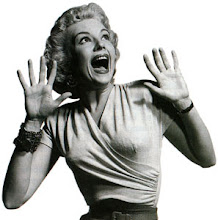An interesting episode in the life of Josh Fox

Josh Fox, US documentary-maker and current mouthpiece of the anti-natural gas drilling movement, has been on what he calls “an exhausting and comprehensive” tour with his film, GasLand. Launching screenings with local grassroot organisations across America and then travelling to Australia for Q&As in Brisbane, Sydney and Melbourne, Fox’s role is one firmly stuck between filmmaker and activist. Tired but still obviously spurred on by the environmental damage he’s seen and the threat to his own home, Fox is determined to continue spreading the message of the film.
GasLand is part exposé, part personal travelogue. The project began when Fox received a letter from a gas company offering $100,000 to lease part of his family’s upstate New York estate for exploration. Instead of signing on the bottom line like many of his neighbours Fox- a theatre director and part-time banjo player- decided to investigate the natural gas industry. “I was in the middle of a raging debate in my area between people who wanted this development and people who didn’t, and I just wanted to find out who was right.”
At the outset of his journey Fox was oblivious to the extend of the damage that hydraulic fracturing (a process for drilling for gas) was causing across America. It was a trip to the town of Dimock, Pennsylvania (shown in the film) that spurred Fox on to action. Interviews with residents there revealed flammable drinking water polluted by chemicals involved in the drilling process and massive health problems caused by toxic emissions. Fox felt terrified.
“I came home [after visiting Dimock] and I couldn’t sleep for a month, I still can’t sleep sometimes when I think about it, because I feel the walls closing in and I feel like I might have to leave.” Indeed, Fox's greatest fear is that he may not ultimately be able to halt the drilling process. “Here I am down in the valley, a lot of the property up on the hill, to the north side is leased. My immediate neighbours to my left and to my right are not leased, but what if they sell their house and the next person leases? … Even if they just drill the properties up on the hill, all those toxic emissions, and I know what they are, are going to waft down and collect in the valley.”

Watching GasLand it is hard not to feel outraged and angry. The film shows how gas companies in the US have been allowed to by-pass environmental laws. But despite all of his alarming and depressing findings you never see Fox angry in the film, which is surprising. “I think I am in shock myself a little bit about that, I think I am really deeply angry, I don’t think that is the way to express it though.” Fox pauses before continuing “Here is the thing, I think you have to leave space for your audience to make up their own mind… GasLand is a series of questions, put forward from a reasonable perspective, and it is in the audience’s hands to figure out what they need to do or what they think. You’ve got to come charging in at the end of the movie, not me, I’m already charging.”
Converting audience outrage into action isn’t easily done, but this filmmakers isn’t shy about pointing the way. “I think people have to be in the streets protesting about this, in the major cities. I think you have to have, at the locations, civil disobedience. The popular opinion has to turn and say ‘no, we are citizens of this country and we really want to examine this before industry comes in and decides to buys out our continent and our government’. At the beginning of the process I was really interested in preserving my land and my house, now the most important objective to me is to move the Earth towards renewable energy. Its about all of us investing in the great change that is to come, which is to get off fossil fuels. And natural gas is dirty just like fossil fuels.”
Becoming the mouthpiece of a cause certainly doesn’t come without its problems, but Fox with his wry sense of humour, seems to be coping. “The film has put the human face on this issue, on gas drilling…For me it is a really interesting rollercoaster. Isn’t this an interesting episode in the life of Josh Fox, I wonder what will happen next?”
First published in The Brag 15/11/10
Images 1,2,3









